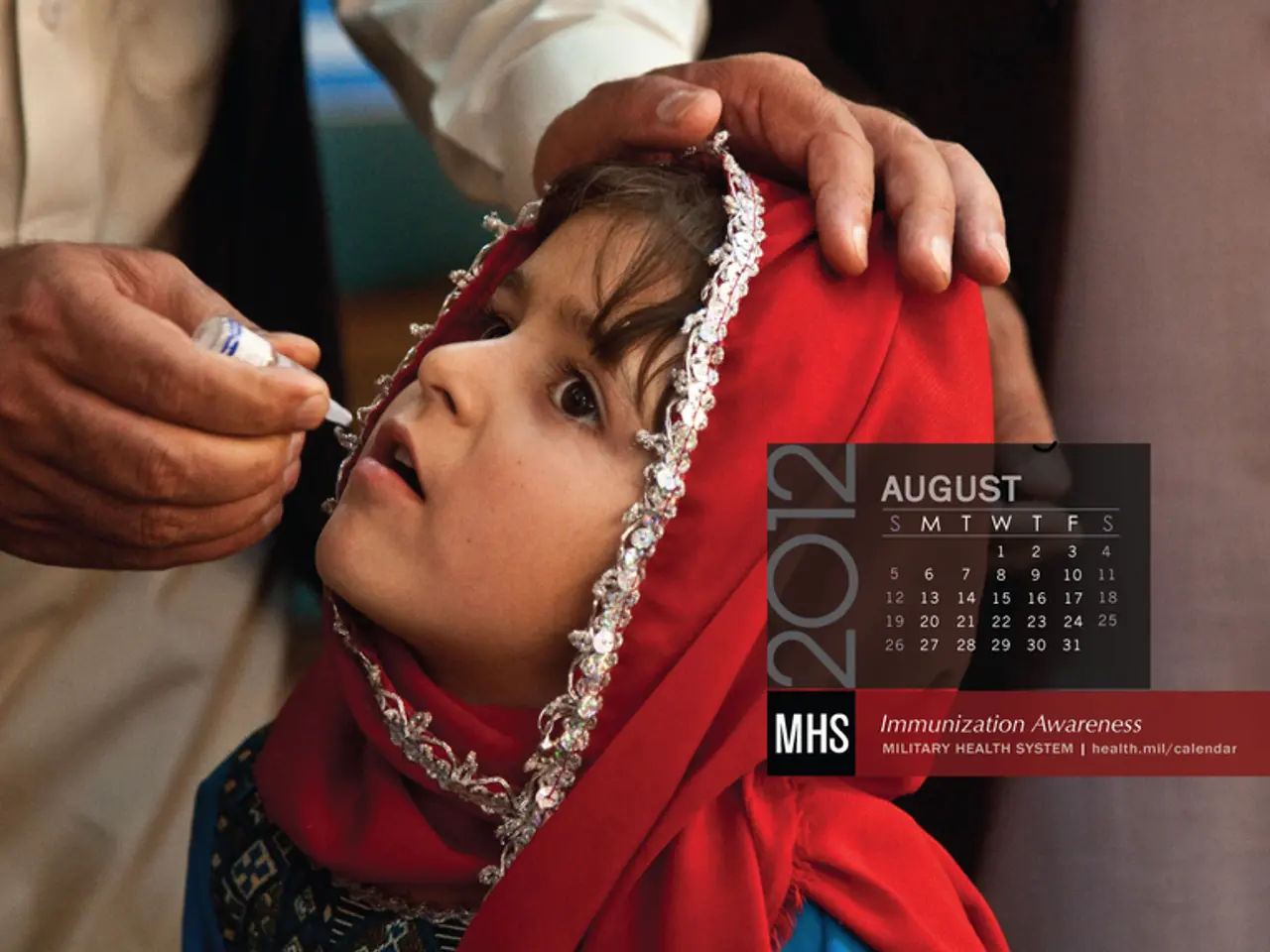Newborn Infants: Guidelines for Vaccination Timing
Premature babies, or preemies, are infants born before completing 37 weeks of gestation, and they often require specialized care due to underdeveloped organs and systems [1]. This article aims to provide a clear and straightforward guide on the vaccination schedules for premature babies, ensuring they are shielded from potentially life-threatening infections.
Following the recommended vaccination schedule is crucial for premature babies, as their immune systems may need time to develop fully [2]. The recommended schedule generally follows their chronological age rather than their corrected age, with specific adjustments primarily for the hepatitis B vaccine. Premature infants weighing less than 2 kg at birth should receive their first dose of the hepatitis B vaccine at 1 month of age or at hospital discharge, whichever comes first [1][3]. All other vaccines should be administered according to the standard schedule for term infants based on chronological age, unless there are specific contraindications [3].
Timely immunization is particularly important for premature babies, as they are more vulnerable to infections. The set of vaccines typically starts at 6 weeks of age, including those for diphtheria, tetanus, pertussis (whooping cough), polio, Haemophilus influenzae type b, pneumococcal disease, rotavirus, and hepatitis B, among others [1]. The BCG vaccine for tuberculosis is usually given at birth or within the first week of life if indicated by geographic risk [1].
Regarding respiratory syncytial virus (RSV) prevention, the American Academy of Pediatrics recommends RSV immunization with nirsevimab for certain high-risk infants, including premature infants less than 8 months old entering their first RSV season, especially if maternal RSV vaccination was not received during pregnancy [2][4]. For premature infants, nirsevimab can be administered during the birth hospitalization or shortly after discharge to provide early protection against RSV.
Building a strong support system around parents of premature babies is important, as raising a premature baby can be challenging. Creating a safe and healthy environment for premature babies is crucial, as they have weaker immune systems. Maintaining good communication with healthcare providers is essential to stay updated on the baby's progress and address any concerns. Consulting healthcare providers for personalized advice on vaccinations for premature babies is crucial.
Parents should remember that factors contributing to premature births include maternal health issues, lifestyle factors, multiple pregnancies, infections, and a history of preterm births [5]. Educating oneself about vaccines is essential for parents of premature babies to make informed decisions. Monitoring and recording vaccinations and any adverse reactions is important for future reference and discussions with healthcare providers.
Managing stress and finding healthy outlets for stress are important for parents of premature babies. Kangaroo care, where the baby is held skin-to-skin, promotes bonding and aids in temperature regulation for premature babies [1].
In conclusion, adhering to the vaccination schedule is crucial for protecting premature babies from vaccine-preventable diseases. Parents should consult a pediatrician to tailor immunization timing if their infant was premature or has special health considerations, but overall, starting vaccines on the usual chronological timeline with the HepB adjustment is the established approach to protect premature babies from infectious diseases.
- Raising a premature baby can be challenging, so building a strong support system around the parents is important for their child's health-and-wellness.
- The recommended vaccination schedule for premature babies is crucial, as their immune systems may need time to develop fully, and they are more vulnerable to infections.
- Timely immunization for premature babies generally follows their chronological age, with specific adjustments primarily for the hepatitis B vaccine.
- The American Academy of Pediatrics recommends RSV immunization with nirsevimab for certain high-risk infants, including premature babies less than 8 months old, as they have weaker immune systems.
- Creating a safe and healthy environment for premature babies is crucial, and mental-health support for parents is also important while dealing with the challenges of parenting such babies.
- Factors contributing to premature births include maternal health issues, lifestyle factors, infections, and a history of preterm births, so educating oneself about vaccines is essential for parents of premature babies to make informed decisions.
- Maintaining good communication with healthcare providers is essential to stay updated on the baby's progress, address any concerns, and consult them for personalized advice on vaccinations for premature babies.




